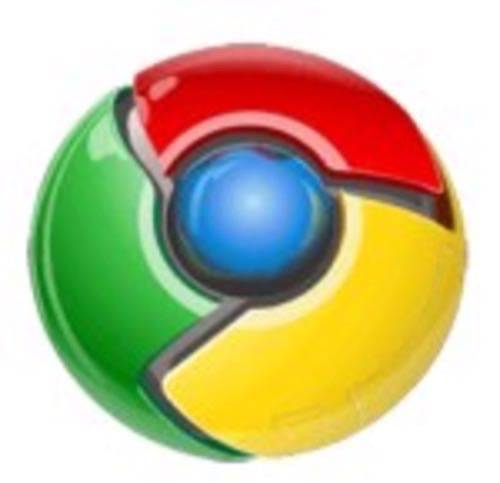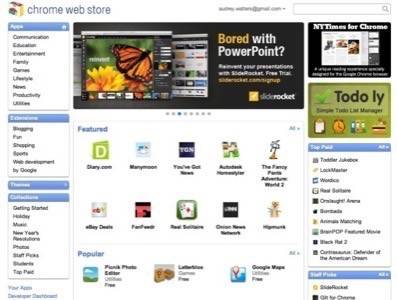Google’s Chrome team made a number of major announcements this morning, including the unveiling of the long-awaited Chrome Operating System. The key theme of today’s press event was the Web itself, as Chrome OS promises a platform that is entirely Web-based.

In conjunction with Google’s new operating system, available on devices in the middle of 2011, Google also launched a store for Web apps and announced some updates to the Chrome browser.
Chrome
This year alone, the number of people using Google’s browser has tripled from 40 to 120 million. In accounting for this tremendous growth, Google touted the speed of Chrome as what users like best about the browser, and Chrome product manager Sundar Pichai announced today Google will be making the browser even faster with an enhancement to its JavaScript engine called “Crankshaft“. According to Pichai, Chrome is 50 times as fast as the fastest Web browsers two years ago and the improvements via Crankshaft are poised to make Chrome even faster.
Other elements of Chrome that were showcased at today’s press conference were Google Instant coming to the Omnibox – with search results as you type, the new PDF reader – demonstrating the ability to load the almost 2,000 pages of the recent Health Reform Bill instantly – as well as support for graphical hardware acceleration. These features are now available via early-access versions of Chrome, but will be rolling out to everyone soon.
Chrome Web Store
The Chrome Web Store also opens today in the U.S., with over 500 applications. An app store for the browser, the Chrome Web Store will feature both free and paid apps. According to Google, the Web Store’s purpose is “helping people discover great apps and developers reach millions of users around the world.”

Chrome OS
After over a year of waiting, Chrome OS was finally unveiled – “an operating system that is built and optimized for the web,” says Google. Noting that people already spend so much time working within a Web browser, building an OS around the browser will make computers faster, simpler and more secure.
But Chrome OS is not quite ready for prime time. As some of the features of Chrome OS require new hardware, Google is launching a pilot program where it will give test notebooks to qualified users, developers, schools and businesses. (To participate in the pilot program, sign up here.) These test notebooks have 12″ screens, full-sized keyboards (minus the Caps Lock key – in the service of elevating Web dialogue, I’m sure), and integrated 3G from Verizon.
The OS will be available commercially in mid-2011 on devices from Acer and Samsung, with other manufacturers expected to follow.

















